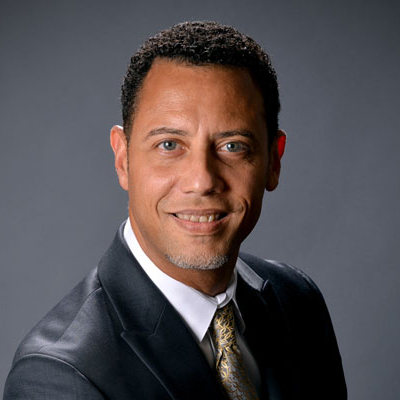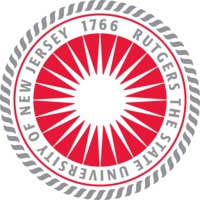Policy analysis and prevention remedies to address the root and consequences of structural inequality
Structural inequality--grounded in racial and class division--has persisted too long in the US, its consequences becoming even more critical as the nation experiences dramatic demographic change. Inequality of opportunity has been framed primarily in terms of income inequality, rather than a focus on the place-based institutions and resources that either promote or constrain opportunity. David D. Troutt, Professor of Law and the founding Director of the Rutgers Center on Law in Metropolitan Equity (CLiME) at Rutgers University, aims to advance public understanding and discourse of structural inequality through the lens of “metropolitan equity.” Metropolitan equity assumes that much opportunity is transmitted through the relative resources of local public and private institutions like schools, health and food access, housing policy and economic development. Profound regional segregation between wealthy municipalities and neighborhoods on one hand and poor areas on the other contribute to continuing cycles of poverty, unsafe environments, and subpar educational quality at the local level. Opportunity hoarding has real consequences for people living in under-resourced communities. Closer scrutiny of the rules governing key local institutions shows chronic inattention to equitable principles. By promoting academic research and engaging not only interdisciplinary scholars but also the public for greater social impact, Professor Troutt hopes to demonstrate that structural inequality is now every U.S. citizen’s problem, and that every community, whether wealthy or poor, must engage policies that advance our best values of healthy personal growth, economic competitiveness, and meaningful democratic participation.
Author of The Price of Paradise: The Costs of Inequality and a Vision for a More Equitable America (NYU Press, January 2014), Professor Troutt teaches an interdisciplinary approach to civil rights, public policy and social science that explores legal and cultural assumptions guiding residential organization in metropolitan America. As the director of the Center on Law in Metropolitan Equity, Professor Troutt collaborates with scholars across multiple disciplines, supervises law and graduate students in publicly engaged scholarship projects and works with non-academic organizations to facilitate public discourse about structural inequality and improving institutional opportunity. Ultimately, he hopes to create an active and organic blueprint for understanding institutional rules and arrangements that produce or deny opportunities based on place, and address a number of issues in housing, public health, access to credit, education, transportation and economic planning.
Current projects include:
- Trauma, Schools and Poverty Project: An interdisciplinary research project between CLiME and a university center on violence and clinical psychology demonstrates the scope and nature of trauma-related disorders among school-age populations in three municipalities. According to extensive research, poverty impairs cognitive function due to threats that produce chronic stress and trauma, reducing quality of life and increasing risks for many long-term health problems like diabetes, hypertension, alcohol dependency and drug abuse. By demonstrating how the law obligates public institutions to provide for low-income children struggling with trauma-related disorders, Professor Troutt hopes to advance prevention remedies that involve better school-based and off-site therapeutic interventions while also advocating for broader deconcentration strategies so that children’s environments are no longer incubators for PTSD. The project includes an outreach component designed to engage the public and scholars in an active discourse around the effects of trauma on life prospects and the resources necessary to stop it.
- The Real Costs of Local Democracy: This project is part of a focus on government transparency and, in particular, how veiled practices tend to increase the costs of local public services for the poorest members of certain regions in violation of basic principles of equity. This project will also look at the existence and consequences of infrastructure spending and municipal fee disparities across Northern New Jersey.
- The Causes and Remedies for Achievement Gaps, Especially in Racially Mixed Classes: This project looks at the peculiar dynamic of educational gaps in those rare districts that are nominally mixed, or desegregated, but suffer a lack of integration in higher-level classes and career readiness rates. The growing phenomenon of what Troutt calls “DIMIs” (Diverse, Inclusive, Moderate-Income Municipalities) brings with it the challenge of educational equity, often within the same school buildings. Understanding and ameliorating these gaps in districts that are becoming increasingly representative of American schools is critical for broader growth in the 21st Century.
- Fair Housing as Metropolitan Equity: The recent focus on fair housing by both the Supreme Court and U.S. Department of Housing and Urban Development should be understood as a return to basic principles of residential organization that facilitates a broader middle class in the absence of discrimination. Fifty-year-old notions of fair housing have become recognizable as the contemporary emphasis on metropolitan equity. This understanding is key because social and economic conditions have changed dramatically since the inception of fair housing concepts in the 1960s, making the dual priorities of anti-discrimination and spatial inclusiveness even more prescient than previously known.

Bio
David Troutt was born to interracial parents and grew up in Harlem at a fascinating time of dramatic social and political change in the 1960s and 70s. His mother came to Detroit from a coal mining town in Kentucky where she met Troutt’s father. Shortly after he was born, his parents moved to New York to explore for themselves and their new family a greater possibility of freedom.
When Troutt was growing up, Harlem was full of activity, with world-renowned Black artists, but also a stubborn heroin trade and an emerging crack epidemic. Nonetheless, it was an exciting time, rich with stimuli and curiosity, and the city would soon become known as the “Gorgeous Mosaic.”
Troutt’s mother was always book smart, but as a black woman she had been discouraged from her dreams of becoming a psychologist. Persistent, she went back to school to get her Ph.D. when she was 40 years old, inspired by the possibility and optimism that New York City had created for her. Just after she began her studies, however, Troutt’s father suddenly passed away when Troutt was only eleven years old. The family went from mild financial stability down to serious economic struggles. Consequently, much of Troutt’s adolescence was spent trying to figure out how to command the resources to live the life his parents had always hoped for him and his siblings.
Eventually, Troutt’s mother did finish her Ph.D. and became a clinical psychologist while working multiple jobs and raising her children. She found every scholarship available for her children to attend a private school in New York, which placed them in two different worlds--one in their neighborhood, the other in a wealthy private school environment. Such a balancing act was a very intellectually rich experience for Troutt, who, within this cauldron, developed passions for social justice, writing and advocacy.
From this point on, he pursued research and advocacy on poverty issues in the San Francisco Bay Area, discovering great personal freedom in California as his parents had in New York. He worked with public interest lawyers and learned how advocates frame issues, conduct research, and think about change. Eventually, he came back to the East Coast to attend Harvard Law School and remain closer to his mother. Having practiced law in New York City for a few years, Troutt went into full-time writing and teaching to dedicate all of his time to finding structural solutions to poverty and inequality of opportunity, as well as educating students and the public about persistent conflicts in our social contract.
Troutt continues his research out of personal and professional commitment to values learned long ago and lessons discovered every day in his work. He has a “shameless” sense of hope, and also believes that universities are singularly competent to do the work of careful analysis, community engagement, resource building, planning for opportunity and policy leadership.
For more information, visit www.clime.newark.rutgers.edu

In the News
On the Supreme Court’s inclusive landmark decisions of the 2014-2015 term, Reuters, July 1, 2015
On the shooting death of Walter Scott, Reuters, April 10, 2015
The Nation, December 29, 2014
Reuters, Aug. 14, 2014
On Schuette v. Coalition to Defend Affirmative Action, Reuters, April 28, 2014
Publications
Awards
Finalist, C. Wright Mills Award, 2014
For The Price of Paradise
Myers Outstanding Book Award (for The Monkey Suit), 1999
The Gustavus Myers Center for the Study of Bigotry & Human Rights in North America, Boston University School of Social Work


